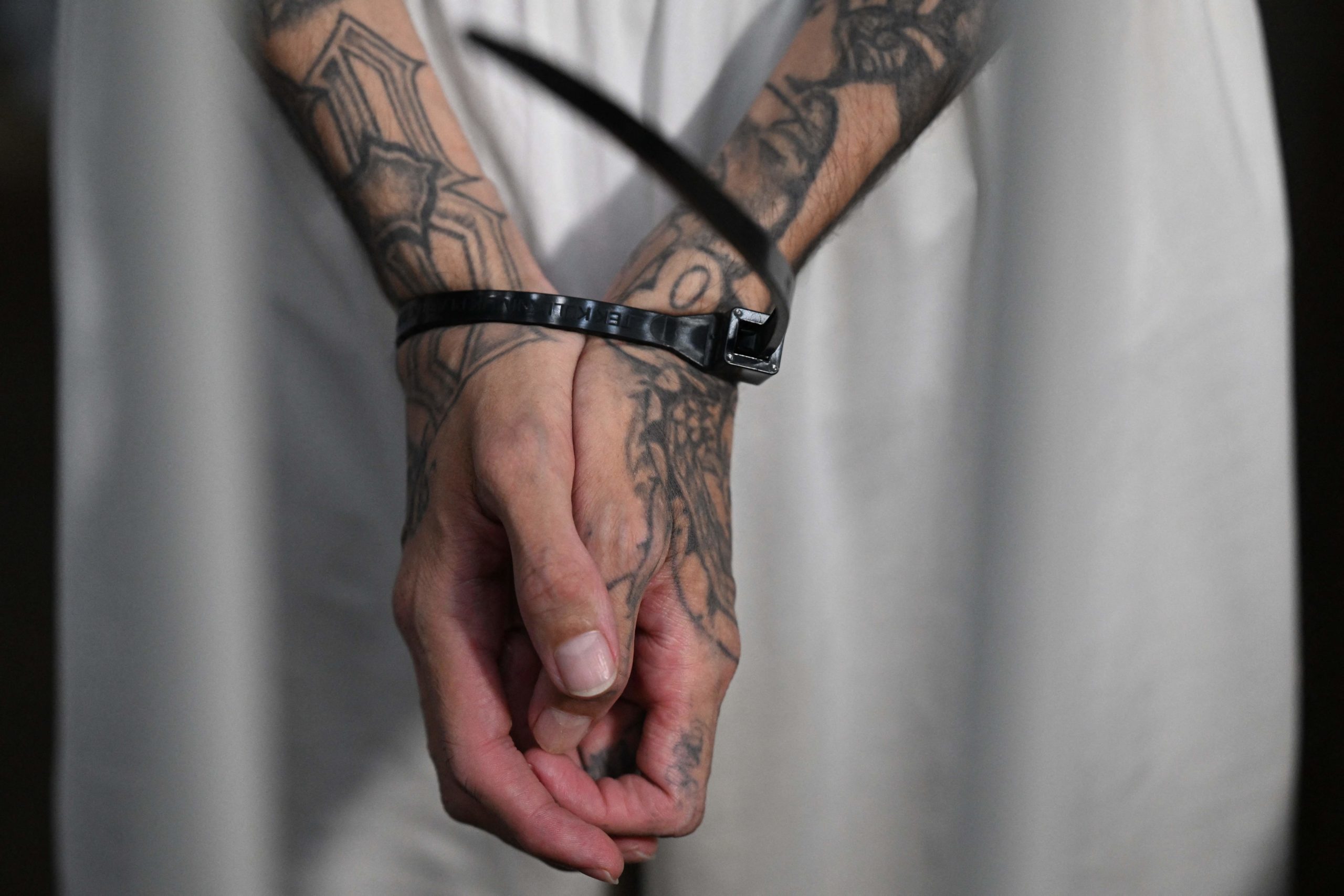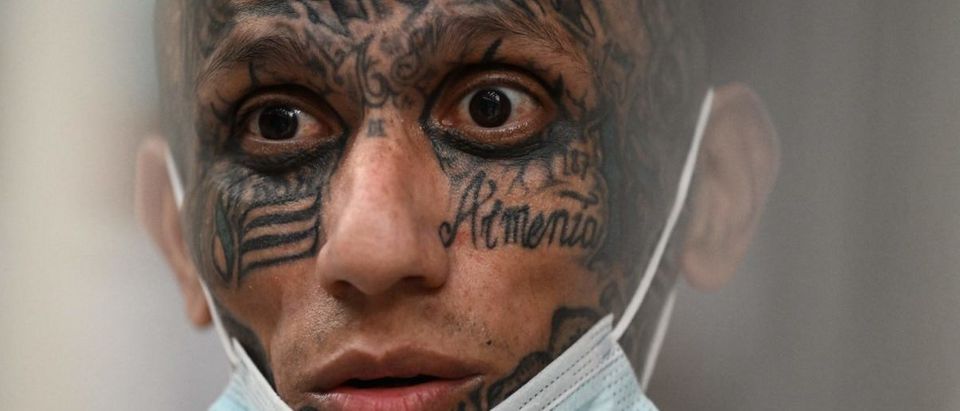- Younger members of certain Latin American gangs are opting not to get tattoos in order to more easily enter the U.S., according to gang experts who spoke with the Daily Caller News Foundation.
- Tattoos are the easiest way to determine whether or not a migrant is a gang member because intelligence sharing with their home countries are limited, Terrell County Sheriff Thaddeus Cleveland told the DCNF.
- “However, if they are identified as a gang member it does not really mean anything from an immigration perspective,” Kyle Williamson, the director of the West Texas Anti-Gang Center located in El Paso, Texas, told the DCNF.
Younger members of Latin American gangs aren’t getting tattoos that show their affiliation in order to enter the U.S., according to gang experts who spoke with the Daily Caller News Foundation.
The tactic of not getting tattoos is commonly used by young MS-13 and Venezuela’s El Tren de Aragua members who are trying to enter the U.S. and skirt border authorities, Kyle Williamson, the director of the West Texas Anti-Gang Center located in El Paso, Texas, told the DCNF. Border Patrol has arrested 515 illegal aliens with gang affiliation nationwide between October 2022 and July, with 156 of them having ties to MS-13, according to federal data. (RELATED: EXCLUSIVE: Border Patrol Previously Released Alleged Virginia Gun Violence Suspects, Including MS-13 Member)
“The trend is for young gang members to not get tattoos. The older gang members with tattoos are more easily identified. However, if they are identified as a gang member it does not really mean anything from an immigration perspective. The main tactic is not to have tattoos and be identified as associated with known gang members,” Williamson said.
A Border Patrol official with knowledge of gang operations, who requested anonymity because they weren’t authorized to speak publicly, also confirmed the tactic to the DCNF.

An inmate handcuffed with a plastic cable tie remains in a cell at the Counter-Terrorism Confinement Centre (CECOT) mega-prison, where hundreds of members of the MS-13 and 18 Street gangs are being held, during a humanitarian visit organized by the presidential commissioner for human rights and freedom of expression, Colombian Andrés Guzman Caballero, in Tecoluca, 74 km southeast of San Salvador, on August 21, 2023. (Photo by Marvin RECINOS / AFP)
Tattoos are the easiest way to detect gang members, Texas’ Terrell County Sheriff Thaddeus Cleveland, who previously served as a Border Patrol agent, told the DCNF, adding that “they’ve gotten smarter.”
“When we have identified gang members, it’s either through information we’ve shared from their country, or if they’ve been arrested here before and identified as a gang member, but oftentimes I bet you there’s even more that we haven’t recognized or identified as being a gang member because, just like those coming in that they’re not running histories on, they’re just allowing them to come in,” he continued.
MS-13 consists mostly of immigrants from El Salvador or their family members, according to the Department of Justice (DOJ). The gang engages in killing rivals and extorting legitimate businesses run by legal Central American immigrants and illegal prostitution and gambling businesses.
El Tren de Aragua is a Venezuelan gang with influence across Latin America that is known for extortion, hit men, drug trafficking, human trafficking and sexual exploitation, according to El Pais.
“They can do terrible things like dismember someone and leave them in a bag. But they usually avoid armed confrontations with other gangs. They are more about leaving messages,” Venezuelan journalist Ronna Rísquez previously told El Pais.
The record levels of illegal migration across the southern border has instilled fear among the Venezuelan community in the U.S. about El Tren de Aragua possibly slipping through the cracks, Patricia Andrade, director of Raíces Venezolanas Miami, a nongovernmental organization serving Venezuelan immigrants, told the DCNF.
“The Venezuelan community is really afraid about the members of El Tren de Aragua in the U.S. I know because they expressed in our social media, saying ‘we don’t want the member of El Tren de Aragua in the U.S.,'” Andrade said.
Earlier this year, Andrade visited with Venezuelan migrants sleeping at the Sacred Heart Church in El Paso. She recalled some of them telling her at the time that they were afraid of some of the migrants, who Border Patrol later told her were members of El Tren de Aragua.
“I felt like I was in danger. Later, I knew from Border Patrol that some member of El Tren de Aragua was on that place that day,” she said.
Immigration and Customs Enforcement (ICE) authorities must adhere to the Biden administration’s guidance limiting enforcement actions to threats to national security, border security and public safety. Gang members might not always fit into those categories, an ICE officer with experience arresting gang members, who requested anonymity because they were not authorized to speak publicly, told the DCNF.
“The one thing that annoys me about this whole thing is that everybody has a different answer as to how we enforce,” the ICE officer said, expressing concern about the gang members he’s seen get away because of the policy.
The Department of Homeland Security didn’t respond to a request for comment.
All content created by the Daily Caller News Foundation, an independent and nonpartisan newswire service, is available without charge to any legitimate news publisher that can provide a large audience. All republished articles must include our logo, our reporter’s byline and their DCNF affiliation. For any questions about our guidelines or partnering with us, please contact licensing@dailycallernewsfoundation.org.


